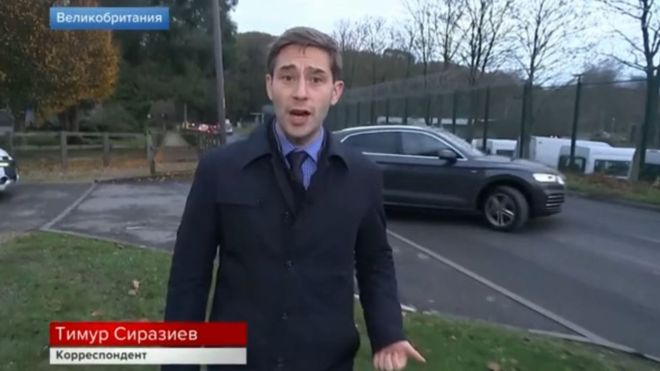
In an interesting display of political judgement, a Scottish National Party politician and Westminster MP, Douglas Chapman, recently posted a message on his social media site stating that the Army’s 77 Brigade were “attacking and undermining our democratic choices” in Scotland. “All paid for by the British State and the UK tax-payer.”
Although the message was deleted, everyone is aware of just how quickly this sort of stuff can spread around the world. There can be little doubt that it was sucked into the Russian mis-information machine and will emerge at some point in the near future as a “statement of fact”. That having been said, it is also a possibility that it was itself the product of Russian propaganda and that Mr Chapman was either a willing or unwitting partner in the continuing efforts by Russia to destroy the credibility of 77 Bde.
77 Bde apparently bothers the Russians. Set up in early 2015, its role is to provide the UK with a military social-media operations capability intended to counter overseas mis-information campaigns aimed at the UK, as well as to reverse the roles by acting against our potential enemies in like-manner. The official mission is to: “Provide support to other government departments in the aim to achieve stability overseas; lead on special influence methods; build military capacity in all stages of conflict.”
Although described as a “brigade”, the 77th is actually remarkably small, almost laughably so when compared with the equivalent organisations in countries such as Russia, China and North Korea. Whilst the latter are said to have hundreds of thousands of personnel, 77 Bde currently consists of some 150 regular and 125 reservists, somewhat below the establishment strength of 440. Presumably these would be augmented at a time of heightened activity, although given that their value might be critical in the period prior to actual open warfare, it remains to be seen as to how they could be boosted without alerting a potential enemy.
77 Bde is the successor to the former SAG, or Security Assistance Group. They had a similar role to the 77th, rather blandly described as “working with cross-Whitehall agencies to achieve the goals of Defence Engagement and Building Stability Overseas Strategies”.
Denison Barracks, the home of the brigade, was in the news at the end of last year when two Russian journalists tried to enter the site, waving some sort of international press-pass. They were, not unexpectedly, denied access. But the incidence allowed them to then stage a broadcast outside the barrack-gates, in which they accused the Bde of spreading “panic, hostility and hatred”. Saying that fake news was being used instead of “grenades”, the main reporter, a certain Timur Siraziev, then claimed that:
“This unit attacks online social networks: every message for social networks is being worked out like a combat operation…. Staged videos of chemical weapons attacks in Syria could not have been done without the British military men here”.

The Army has denied all of these claims. More specifically, they have cited examples of 77 Bde activity as being that of trying to counter Russian online-propaganda portraying NATO troops deployed to the Baltic States as being “criminals and rapists”. This is an area of the world where Russian minority populations seem to be the target of “persecution propaganda”, intended to make them feel they are directly threatened by the local governments acting in concert with NATO. As with other regions on the edge of the Russian state, there is a concern that Mr Putin is building up a false picture of oppression of ethnic-Russians to justify yet another land-grab.
And so, back to Mr Chapman, MP.
As SNP Spokesperson on Defence Procurement, Peace & Nuclear Disarmament at Westminster, and also “the only Scottish MP on the NATO Parliamentary Assembly”, he is centrally involved in that party’s attempts to leave the UK and have the submarine nuclear-deterrent removed from Scotland. Although some in the SNP wish to join NATO in some form, it is hard to see how they can reconcile that with views expressed by supporters of Chapman that :
“It’s difficult to square membership of nuclear ‘first-strike’ Nato – an all-but-unaccountable international military force dedicated to maintaining US hegemony even while sowing chaos through its very presence”.
That said, one is left wondering why Mr Chapman chose to associate himself with the views of a known press-provocateur working for Russia’s Channel One. Perhaps he was the victim of hacking by them and the comment appeared on his account without his knowledge. If that were the case, however, it might be reasonable to suppose a condemnation by him of such an attack would have appeared by now. (Perhaps it has and we have missed it.)
Regardless, it hard to see the comments on Mr Chapman’s social media site as anything but an extension of Russian (or other similar actors) attempts to dismay people in countries such as ours by turning them against the institutions that work so hard to protect them. In fact, it is becoming increasingly difficult to understand how we, as a country, will be able to maintain the freedoms we currently enjoy without taking a rather firmer stand against the sorts of actions that people like Mr Chapman seem to feel are acceptable.
As someone once asked: “How far do you go in upholding the freedoms of a liberal democracy? Will you still maintain that they have the the democratic right to express their views when they are holding a knife to your throat?”
It’s a hard one to answer, of course. But one wonders whether a BBC team would have been allowed to do the same outside the Russian equivalent of Denison Barracks. .

Comments on Mr Chapman’s take on the role of 77 Bde.